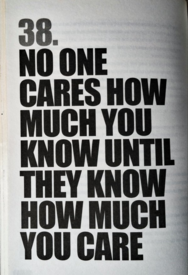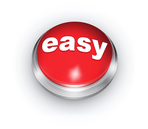You're getting out there... out in the market and out of your comfort zone. You're doing the networking thing and getting some traction. Your activities have resulted in you having a breakfast meeting... tomorrow.
What's your plan?
Collateral materials in order? Check. Researched the person you're meeting with? Check. Directions to your meeting place? Check.
You're ready to rock, and it's show time.
Working in the valuation consulting field, I have the good fortune of meeting a lot of great people. Some of them have been or will be in transition. Some of them are in transition when I meet them. This affords me a fantastic opportunity to add value, give-back and help.
In my last article on this topic, The Job Search - 3 Things You Need to be Doing Before You Start, I shared feedback from folks in transition who wished they'd done things differently. Continuing that theme and summarizing the feedback, here are three more things that you need to be doing - once you're at the meeting.
1. Be Interesting
It's a very competitive landscape out there in all fields and at all levels. It's not enough to just demonstrate that you have solid experience or even a transferrable skill set. Lots of other folks can say the same - and some have more of both than you do. So how can you compete with that?
Some of it is a matter of presentation. Lots of folks will default to talking in buzzwords and rely on their industry jargon, and that might be ok up to a point.
But when everyone is saying the same things like "I'm a detail-oriented _____ with a particular emphasis on _____ with XX years of experience," the person on the opposite side of the table tends to hear "Blah, blah, blah..." It's the same old, same old.
Yes, the bona fides matter. But there are more interesting ways to convey that you have them. For example, story telling is a great way to demonstrate that you've been there - done that, without sounding robotic or scripted. It's actually interesting, and oftentimes very different; in a good way. If you aren't demonstrating your experience by talking about the circumstances in which you've actually done it, you might want to spend some time working on that.
2. Be Interested
The meeting was arranged to talk about you, right? What you're looking to do or who you're looking to meet.
Before you go too far down that path, here's a spoiler alert: It's not about you.
Certainly not yet.
As I've said previously, people are basically decent and want to help. But nobody likes a taker.
So, with that in mind, please spend some time talking with the person across the table about what matters to them - what they're working on and how you might be able to help them.
This doesn't necessarily have to happen at the beginning of the conversation, so it might be "about you" early on. But it won't be "about you" if this doesn't happen at all.
So before you leave, make sure you talk about that other person. You don't need to have an immediate 'give' to help them in that moment - the point is that you've asked the right questions (authentically) so that you know how to do so at some point.
The preceding image says it all.
3. Make it Easy For People To Help
Many of the things that start with "it goes without saying..." apparently need to be said anyway. This is one of those things.
Inevitably, someone is going to ask you what they can do to help you. It's the moment you've been waiting and planning for, so it goes without saying that you should be ready for it and make it easy for the person to help you.
For example, don't just say that you want to meet 'bankers and attorneys.' Is there any more color you can add? Like what size companies they work with? Or industries? Or personalities? Anything that will allow the person who wants to help you easily connect the dots?
Perhaps there is a specific person in their network that you'd like to meet. After you've earned the right to ask for that introduction, make it easy by providing some language to help facilitate the introduction.
People want to help - make it easy for them.
Thanks for reading - If you enjoyed this article, please click the Like button above and let me know! (and if you like it, why not share it?)
You might enjoy these other insights from Dave.
This article was also published on LinkedIn Pulse.
About the Author:
Dave Bookbinder is a Director of Valuation Services at GBQ Consulting where he helps his clients with the valuation of businesses, intellectual property, and complex financial instruments. More than a valuation expert, Dave is a proactive problem solver who consults with companies of all sizes, both privately held and publicly-traded. Dave strives to lend his business experiences to help people with a variety of matters. For more about Dave, visit his LinkedIn profile.




